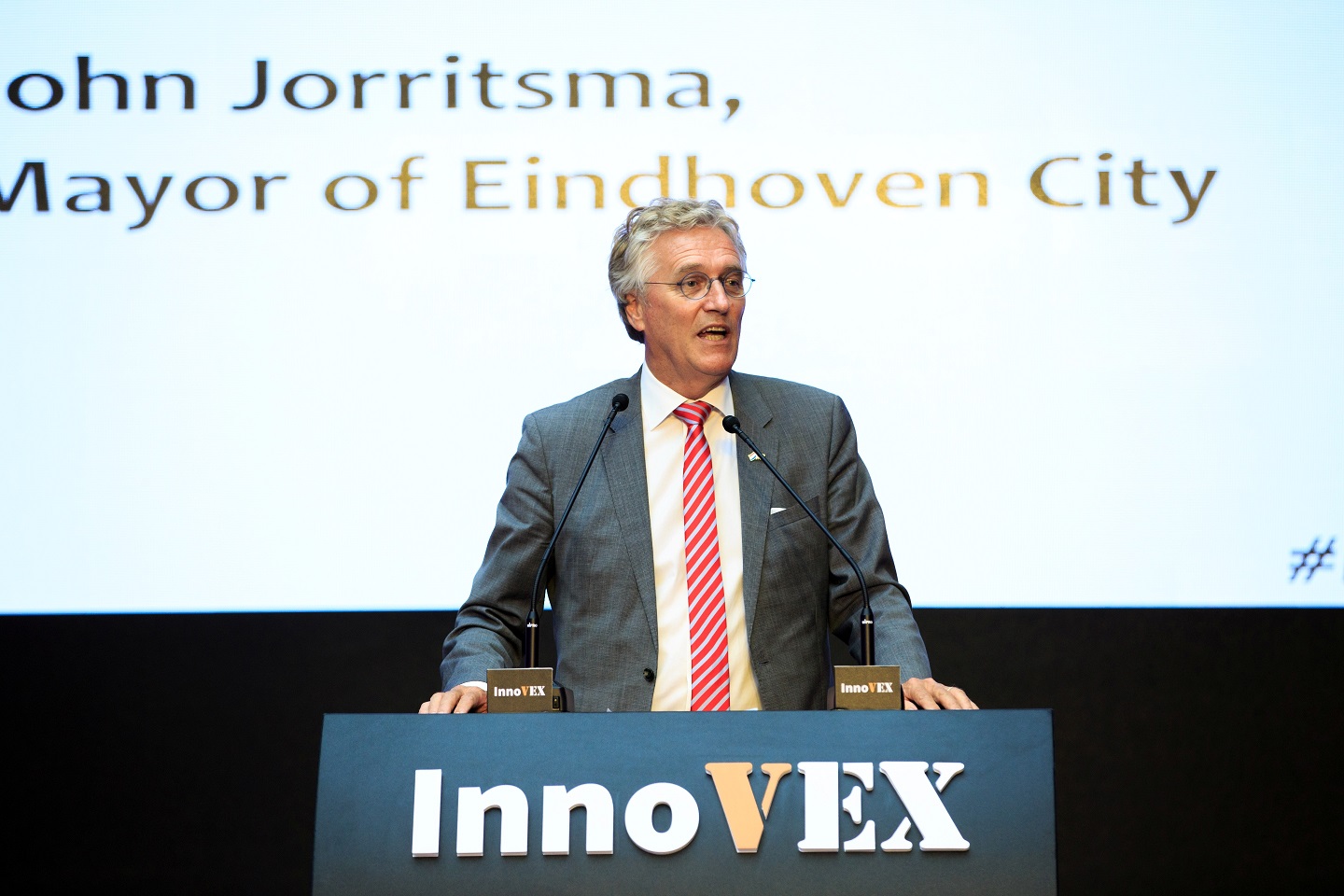
Blockchain has been one of the main topics of InnoVEX since last year. In InnoVEX 2019, one of the speakers of the blockchain forum session is Mr. John Jorritsma, the Mayor of Eindhoven City. As a smart city, Eindhoven focuses not only on the technologies, but also the people and how the dynamic relations between the 2 factors interplay.
A Welcome Development
One of the main aspects of a city is the people and by 2050, approximately 68% of the world’s population will live in urban areas. With an expected 9.8 Billion people, this means 6.7 billion people will live in cities which will require a novel or revolutionary management process; making smart cities a necessary development for the future. Smart cities are also estimated to contribute up to 60% of the world’s GDP by 2025; giving its creation further economic incentives.
Mr. Jorritsma stated that cities are very complex systems. The local governance provide critical elements in the city’s dynamics; but as urbanization grows, there will also be a growing need for adequate infrastructure, energy, food, effective administration, transportation, and work. Cities around the world will need to transform and optimize the living standards of their citizens.
This development of course will require collaborative efforts; combining technologies to create new solutions that can solve the problems. The Netherlands government has collaborated with Singapore on a joint research security between the Cybersecurity Agency of Singapore and the National Cybersecurity Center of Netherlands. The Hague Security Delta has also succeeded in building a cyber resilience framework with New York, Washington, and San Francisco.
Smart Cities Need Smart Communities
Despite all the excitement surrounding smart cities, the importance of the citizens is in no way reduced. In fact, their roles are even more important in the efforts. Citizens are the heart of every smart city and new technologies such as blockchain can further increase the citizens’ roles in the system. Blockchain can provide great potential for improving city governments such as by enabling fraud free voting, smart contract administration, safe transmission of secure & private information, and more.
Blockchain applications in smart cities will facilitate open data communication; allowing cities to open and share city data and allowing cities to involve citizens in urban decision making in the future and be able to create a good, safe living environment for the inhabitants.
Eindhoven aims to build a smart society, with smart people, intelligent community, and quality of life in the city as the main goal of this city management. The smart city is to be co-developed by citizens and companies who create smart solutions for not only daily challenges; but also societal challenges.
Blockchain in the Smart City
Netherlands also has the Dutch Blockchain Coalition; a jointly developed partnership by a triple helix of industry, government, and academia. They have assumed a leading role and joint responsibility for the success of the national blockchain action agenda. The Dutch government also has the political ambition to fundamentally secure the autonomy of its citizens in the digital world.
Various experiments are conducted in Netherlands to see what blockchain can offer to contribute. One such experiment is the self-sovereign industry which gives citizens the opportunity to control their own data; developing a digital identity at a passport level that allows people to safely act in the digital world. To further give control to the citizen, the access to this digital identity might be linked to an organization, electronic device, etc. The possible use cases are very diverse; including handling income taxes, digital identity, autonomous vehicles, logistics, even transportation of toxic waste across countries.
The Dutch government is very eager to test and use what’s being done in other innovative industries. There are many projects and works being done not only by government entities, but also startups, universities, and corporates. This collaboration and the fact that the projects are open source lower cost for government; following the philosophy that innovative powers are best when it’s win-win for all.
Conclusion
Technology such as blockchain can create new norms and rules for data usage; for privacy regulations and to protect citizens. Creating a smart city network with peers around the world to help and find solutions to contribute to the global sustainable development goals will make sure the smart cities can function as intended through global collaborative efforts.
To watch the full forum session, visit our YouTube channel here.